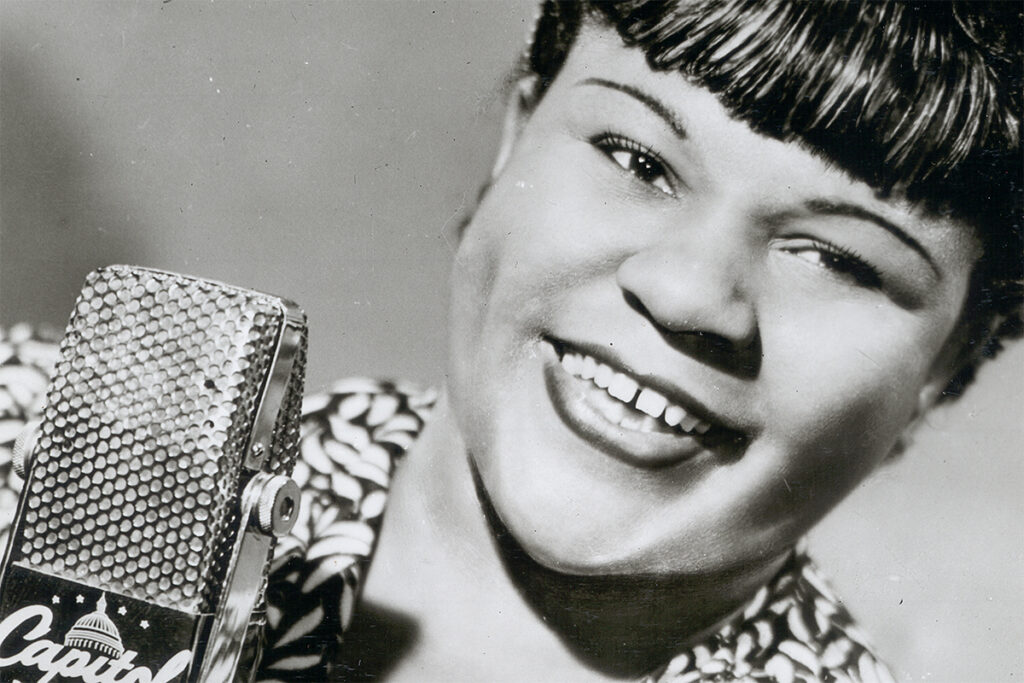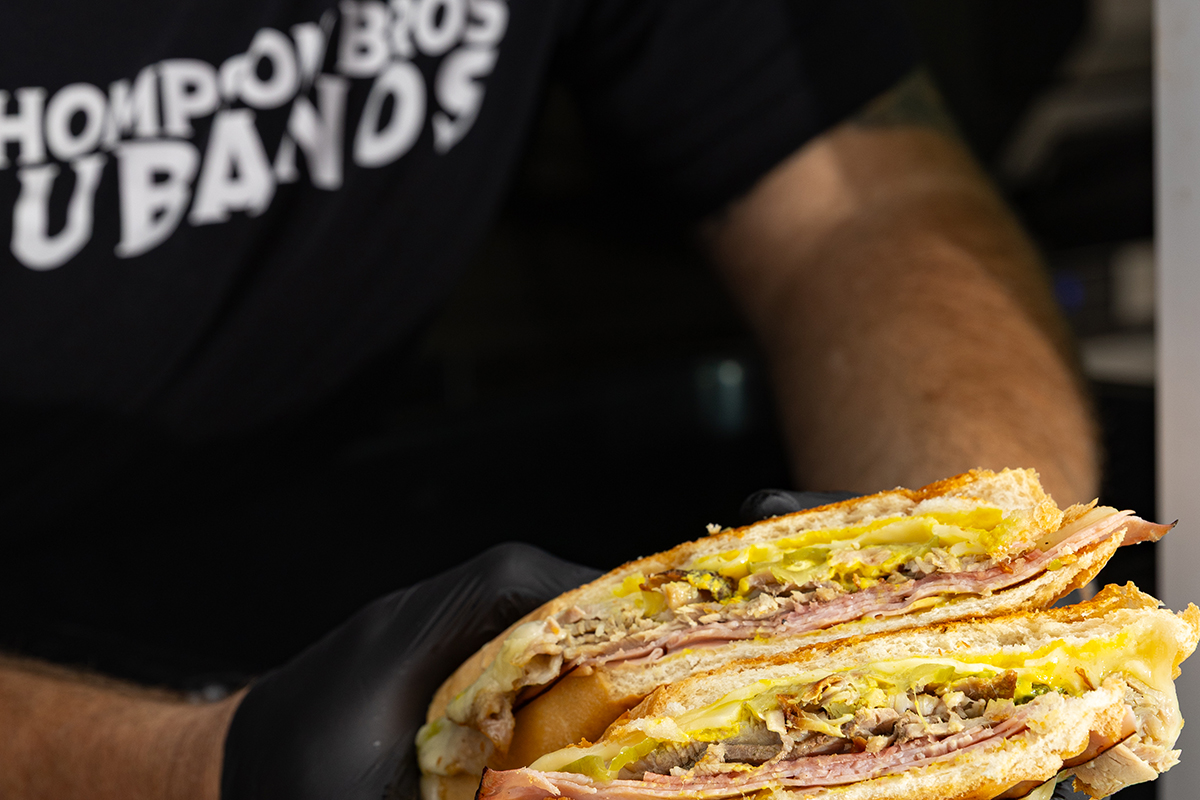Julia Lee’s legendary status in Kansas City jazz history has long been upheld by her Capitol Records hits, which she referred to as “the songs my mother taught me not to sing.”
A contemporary of dirty blues singers Ma Rainey, Bessie Smith and Lucille Bogan, Lee’s lyrics were risqué, but she preferred to call them risky—the former was “too fancy” for her.
While the radio airwaves—and Kansas City Liquor Control, after trying to ban her from performing—weren’t ready for her “risky” double entendres in her chart-topping songs “Snatch and Grab It” and “King Size Papa,” that didn’t stop her success. In fact, she even performed some of those sexy singles at the White House at the invitation of President Harry Truman. But Lee’s legacy goes beyond those bawdy hits.
Lee could play a ballad with a depth and conviction that could bring you to tears, as heard in her rendition of “Love in Bloom” from her last Capitol Records session in 1952. She was beyond accomplished as a pianist, which is how her career began. And she didn’t just play for the crowd; she played to them.
“But she was kind of typecast as ‘naughty Julia Lee singing risqué songs,’ says jazz historian and author Chuck Haddix. “Her repertoire overshadowed her virtuosity.”
Born in Boonville in 1902 or 1903––while many sources say 1902, her gravestone cites 1903––and raised in Kansas City, Lee began performing as a child, singing alongside her brother George with her father’s string trio at neighborhood and church gatherings.
By the time she was a teenager, she became one of the first women to join the Local 627 Musicians Union, playing piano and singing in her brother George E. Lee’s Novelty Singing Orchestra. Among the ranks of Bennie Moten’s Kansas City Jazz Orchestra, the band was one of KC’s best and most popular throughout the twenties and thirties, going on to tour extensively throughout the region and briefly including a young Charlie Parker in the line-up. It was during this time that Julia Lee wrote and recorded (for the first time) “Won’t You Come Over to My House?” a song emblematic of the Kansas City style that continues to be performed today.
But after her brother’s group disbanded in the mid-thirties, Lee went on to forge her own solo career.
Dave Dexter Jr., a prominent local music producer and journalist throughout the Swing era and beyond, was first introduced to Lee when she was just a sophomore at Northeast High School. He was taken aback by her playing and singing. It was then that Dexter told Lee, “I’m gonna get you on some records some day,” according to a 1986 interview with The Kansas City Star.
Dexter kept true to that promise. As a Capitol Records executive, he signed Lee to the label in 1944, jumpstarting her series of “risky” hits. Thanks to jukebox plays and record sales, “Snatch and Grab It” and “King Size Papa” were number one on the Billboard R&B chart for several consecutive weeks in 1948 and 1949, respectively.
“I think Dave Dexter Jr. may have encouraged those tunes,” Haddix says.
While Lee’s hits may have tapered off in 1949, her popularity in KC didn’t. She remained an in-demand performer up until her death in 1958.
LISTEN: Listen to unreleased piano recordings of Julia Lee from her last Capitol Records session in 1952, courtesy of the UMKC’s Marr Sound Archives.






